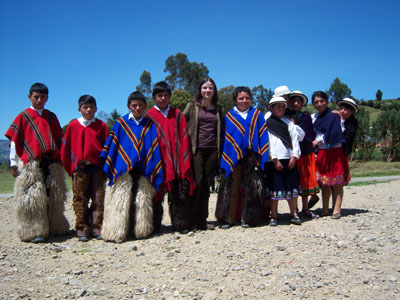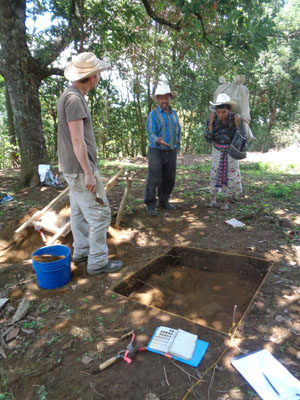Research Initiatives in the Department of Anthropology

The department of anthropology has 22 full-time faculty working in the subdisciplines of biological, archaeological and cultural anthropology. Members of the department share interests in a variety of topics. We investigate environmental and social justice and the origins and changes in inequalities across time and space. We research human evolution and transformations in health disparities, cultural practices, and power dynamics. We explore cultural heritage, meaning, and the intersection of multiple forms of identity. Faculty, students, and the museum of anthropology engage directly with various communities across the Commonwealth and beyond. We apply anthropology in a way that incorporates theory and practice to understand and address persistent and urgent problems. Our faculty work in the United States, Mexico, the Caribbean, Central America, South America, Africa, Southwest Asia, South Asia, Southeast Asia, and Europe.

The cultural anthropology program centers everyday life locally and globally and provides skills in close listening to, and communication across, diverse perspectives. Shared strengths at UK include: 1) studying how people imagine identity, power, and difference and act on those understandings in social life; 2) studying how people respond to environmental and social change across historical and geographical contexts.
The archaeology program features interdisciplinary exploration of societies from the Pleistocene to the present, with a focus on engaging and empowering contemporary communities. Faculty and affiliates conduct research in the southeastern United States, Mesoamerica, Central America, the Caribbean, South America, South Africa, the Philippines, and the Mediterranean. The collections of the William S. Webb Museum bolster research in Kentucky and the Ohio Valley more generally. Our faculty and students explore a wide range of topics, including demography, inequality, households, economy, interaction, ecology, migration, colonialism, culture contact, collective action, identity, captivity, climate change, subsistence, power, and political organization. Technological expertise includes geophysics, heritage sciences, chemical sourcing, and spatial, ceramic, and lithic analysis. We equip students to design transformative research and apply their knowledge in diverse global contexts within and beyond the academy.
The biological anthropology program takes as its primary focus human/environment interaction as it shapes populations across space and through time by envisioning the adaptive environment inclusive of its evolutionary, social, and cultural aspects. Strengths include: 1) Training and research in advanced field and laboratory methodologies of human skeletal variation, forensic scene reconstruction, taphonomic analyses, and biological profile estimations. 2) Theoretically engaged research approaches to the physical embodiment of social processes via skeletal plasticity. 3) Application of digital and quantitative methods and evolutionary theory to the study of the human fossil record. 4) Community-based research of environmental health incorporating anthropometry, nutritional anthropology, toxicant exposure and the developmental origins of disease.
Faculty are engaged in numerous research projects, many of which are collaborative endeavors with other UK faculty and staff or researchers at other universities and institutions. Graduate students will often work directly with a faculty member on aspects of their research or may design related research in regions of their own choosing. A comprehensive list of departmental Ph.D. dissertations can be found here.
